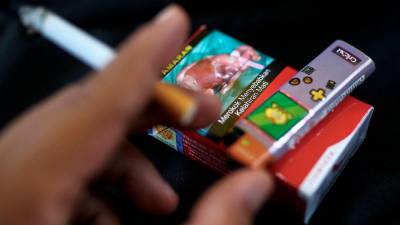PETALING JAYA: The Consumers’ Association of Penang (CAP) has urged the government to reintroduce and raise the sales tax on cigarettes in Budget 2026, pointing out that tobacco products have been exempted since 2018.
CAP education officer N.V. Subbarow said smokers spend about RM500 monthly—often more than they do on nutritious food—and that higher prices can make tobacco less affordable and motivate smokers to quit.
“As such, CAP expects a mandatory sales tax on cigarettes in Budget 2026 if the government wants to reduce the current number of five million smokers,” he said in a statement today.
He said higher tobacco prices discourage new smokers and help existing users either quit or cut down. The additional tax revenue, he added, could fund public health programmes aimed at reducing tobacco use.
“This measure amplifies the impact of the tax policy,” Subbarow said.
Citing the World Health Organization and the International Agency for Research on Cancer, he said there is “sufficient evidence” that higher tobacco taxes lower smoking rates and youth initiation.
Subbarow expressed confidence that the “caring Madani government” will deliver “healthy news” on cigarette taxation in the upcoming budget.
Separately, he criticised the Health Ministry for sending mixed signals on tobacco control, questioning the logic of raising vape taxes while promising a total ban next year.
He urged the ministry to clarify whether the vape ban will indeed take effect by mid-2026 as announced.
“The ministry must stop fooling the rakyat or playing drama on the vape issue. The minister said vape would be banned by the middle of next year, so what is the point of introducing a vape tax now?” he asked.
“Money is not the problem. Many youths already find ways to obtain vape products—through imports, smuggling or producing their own. CAP is firm on its stand for a total ban. If there is no ban, the cost of vaping-related illnesses will double in the future,” he warned.
Deputy Health Minister Datuk Lukanisman Awang Sauni recently proposed a 900% increase in excise duty on vape liquids—from RM0.40 to RM4.00 per ml—as an interim deterrent before the full prohibition.
He told the Dewan Rakyat that the ministry will submit a Cabinet memorandum by year-end to formalise the ban, targeted for mid-2026.
In 2024, the government collected RM111 million in vape-related excise revenue, while treatment costs for vaping-linked illnesses, including e-cigarette or vaping use-associated lung injury (Evali), reached RM223 million.
“Without intervention, annual healthcare costs could rise to RM300 million to RM400 million by 2030,” he said.
